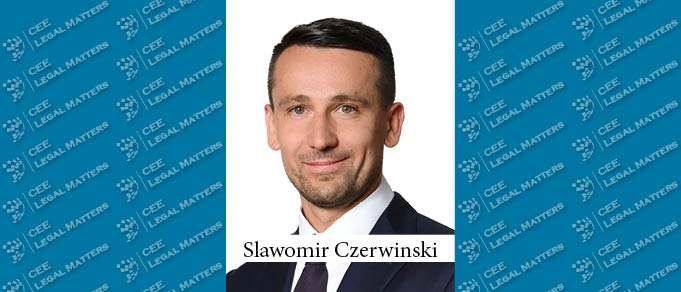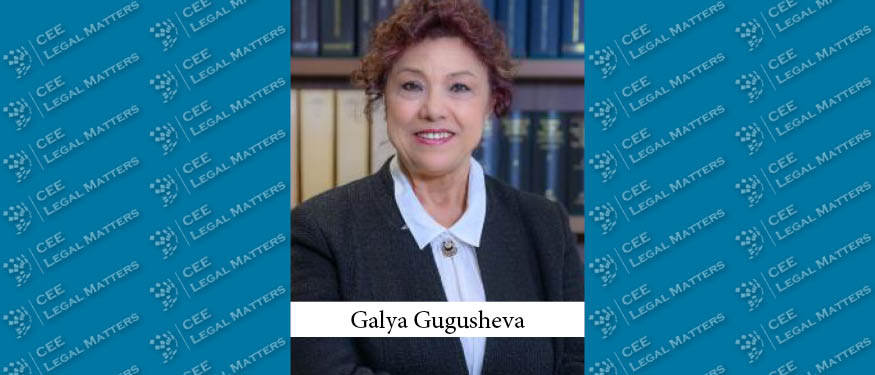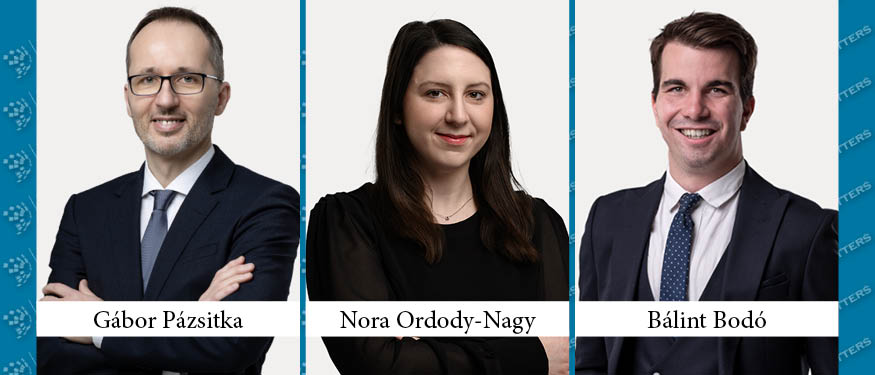CMS' Slawomir Czerwinski Talks About The Deal of the Year in Poland - InPost IPO.
CEELM: First, congratulations on winning the Deal of the Year award in Poland!
Czerwinski: Thank you on behalf of the whole team.
CEELM: Can you describe the deal for us and CMS's role in making it happen?
Czerwinski: Although Advent’s investment in InPost has been in the public spotlight and many people might have heard that it has been extremely successful, not everyone knows that it is actually one of the most spectacular PE investments of the last decade.
As for the transaction itself, Advent’s exit from InPost was a dual-track process. We were engaged both in the M&A and the IPO streams. Finally, the exit was concluded by the IPO of InPost on the Euronext Amsterdam Stock Exchange, which involved the listing of the Luxembourg holding company of the Polish group on the Dutch stock exchange.
CEELM: How did you land the mandate and what do you believe it was about your team that got it for you?
Czerwinski: The core part of the team, including Jaroslaw Gajda and I, advised Advent on its investment in the group in 2017 and further, throughout the investment. At that time, we were both working in another law firm, having moved to CMS in 2020. As we knew InPost very well, we were in pole position to get the mandate.
CEELM: As reported, in 2017 Advent International invested in the InPost Group. At that time, the InPost Group was listed on the Warsaw Stock Exchange and was taken private as a result of the investment. Why was the Euronext Amsterdam Stock Exchange chosen for this IPO?
Czerwinski: It might be difficult to believe now, but the investment in InPost was not an obviously good bet at the beginning. It required a great deal of courage, faith, and tenacity from Advent’s deal team to go ahead with the transaction. When we spoke to Advent’s team about it for the first time in August 2016, it was not a secret that a couple of other investment funds had already killed this deal after having a closer look.
This was not because they did not believe in InPost’s business model created by the group’s founder, Rafal Brzoska. Quite the opposite: it was clear that InPost’s APMs outperformed competitors in all fields that are critical to building a competitive advantage in e-commerce logistics, such as delivery time, cost, and convenience. However, it was certain from the outset that the execution of the deal would be extremely complex, and it was far from certain whether, after spending a great deal of time on the transaction, it would still be possible to close it successfully.
I remember very well our first kick-off call with Advent’s deal team. I was calling into it from a petrol station in the Austrian Alps as I was on holiday doing my traditional annual motorbike trip with my father. We were instructed to focus on the critical elements of the deal and not to get distracted by all the other issues that would be addressed after we crossed the first hurdle. Almost exactly a year later, I sent an email to the deal team from another petrol station, this time somewhere in the Carpathian Mountains in Romania, to inform them that we had just received the decision confirming that Integer and InPost had been delisted from the WSE.
From closing the investment, it was a pleasure to watch how the company went through its restructuring, strengthened its business model, and became an absolute leader in e-commerce logistics. I suppose this is one of those rare cases where the investor, the founder, and the management team turned out to be an almost perfect match.
The IPO on the Amsterdam Stock Exchange opened the next chapter for the InPost team, and, in my view, it fits very well into their strategy. InPost wants to become an international leader. It is already doing very well in the UK and France and, within the next couple of years, the majority of its business may be located outside Poland. Therefore, the Amsterdam Stock Exchange seems to be the right venue for the listing.
CEELM: What were the most complex aspects of the IPO from a legal perspective? And what were some of the biggest difficulties faced in the process?
Czerwinski: Apart from the usual IPO issues, many things were happening behind the scenes. For example, the shareholders’ agreement, agreed upon in 2017 between Advent, Rafal Brzoska, and certain institutional investors, was implemented based on a corporate structure typical for PE investments. This structure had been changed before the IPO and the shareholders’ agreement had to be adjusted accordingly. This was a fairly complex exercise for all of the advisors, including us advising on legal matters.
CEELM: In contrast, what, in your opinion, went particularly smoothly and what do you believe contributed to it?
Czerwinski: In my view, the whole process went quite smoothly. Of course, it was a complex transaction and certain things could have gone sideways, but many people did several extra miles to make sure that everything eventually went well. Some say that it is not generals who win a war, but the lieutenants. It goes without saying that InPost has excellent generals, but it also has so many superb lieutenants operating at different levels. Those include people from both InPost’s and Advent’s teams, but also several hired guns advising on legal, tax, financial, and business issues. For me, it was a unique experience to watch the integrity and team spirit of all the people working together.
CEELM: Why do you believe the judges voted for this deal over the others?
Czerwinski: Apart from the fact that it was a large, complex, and very well-managed deal, Advent’s investment in InPost is a true success story and a worthy reward for the hard work by the InPost team and the risk taken by Advent as the investor. It truly deserves recognition. In fact, Advent also recently received the CEE Deal of the Year award for InPost at the Private Equity Awards gala, one of the most prestigious private equity awards in Europe.
CEELM: In your view, what is the significance of this deal for the Polish market?
Czerwinski: There’s no doubt this was a significant deal for the Polish market. It was one of the largest IPOs of a business group from Poland to date. Many people remember that InPost had been in a difficult position before Advent’s investment and did not realize what progress the company has made since that time. The scale of InPost’s business and the value of the IPO (EUR 3.2 billion) was a surprise to many.
CEELM: And do you believe we can expect other similar IPOs in the near future? Why/Why not?
Czerwinski: Following the InPost IPO, there have been some other successful IPOs of Polish companies. These include the IPO of Shoper, the owner of a platform for the e-commerce market supporting users in conducting their own online sales, and STS, a leading sports betting company. Naturally, these companies are smaller than InPost, but they are quite similar in terms of the effort that has been put into different areas to maximize growth and enforce their business case before the IPO, and therefore to gain investors’ trust and increase the IPO valuation. Currently, market conditions do not favor IPOs, and a couple of potential ones have been put on hold. Some investors and analysts even predict that another wave of P2P transactions is on the horizon. Nevertheless, many companies seem to be steering towards public offerings and their IPOs would definitely attract a great deal of publicity and interest from investors, probably at a level comparable to the InPost IPO.
This Article was originally published in Issue 9.5 of the CEE Legal Matters Magazine. If you would like to receive a hard copy of the magazine, you can subscribe here.















